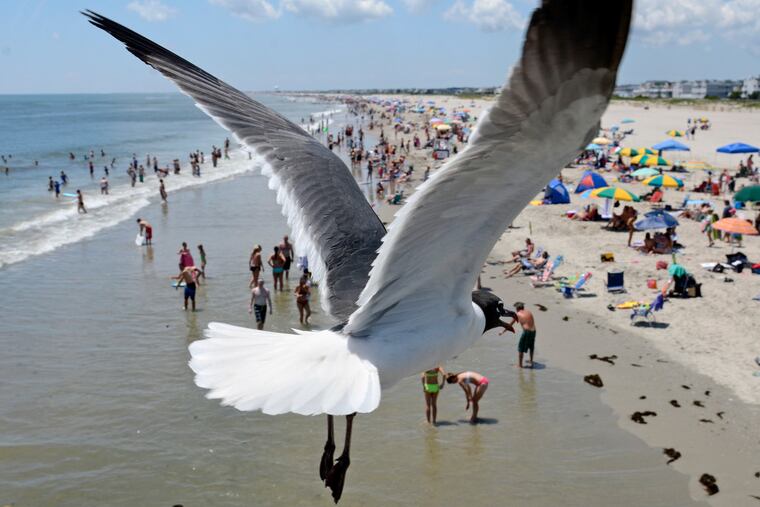Best way to prevent seagulls from stealing your food? Stare.
The scientist tried to test 74 herring gulls in coastal town of Cornwall, but most flew off or would not play the game.

Seagulls are known thieves. With the precision of a stealth aircraft they can swoop in and abscond with a tasty treat from any unsuspecting target. Children are sitting ducks.
The beach is their all-you-can-eat buffet and the gulls know it.
The winged-bandits can be so aggressive this time of year, that Ocean City has now employed falcons, hawks, and owls to scare away the birds as part of their gull-abatement program.
But scientists in Great Britain may have found another way to save your snack: staring.
University of Exeter researchers put chips — known as French fries in the U.S. – on the ground to see how long it took herring gulls to approach when a human was watching them, as opposed to when the human was appearing not to pay attention.
The study, “Herring gulls respond to human gaze direction," was published in the journal Biology Letters.
The scientists tried to test 74 herring gulls in the coastal town of Cornwall, but most flew off or would not play the game — 27 approached the food. The researchers ended up with 19 gulls who completed the test with the human watching or looking away.
It took about 21 seconds longer for a hungry gull to approach when the human was staring at them.
“It seems that just watching the gulls will reduce the chance of them snatching your food," senior author Neeltje Boogert, a research fellow at Exeter, said in a press release.
“Gulls are often seen as aggressive and willing to take food from humans, so it was interesting to find that most wouldn’t even come near during our tests,” lead author Madeleine Goumas, of the Centre for Ecology and Conservation at Exeter, said in a press release.
The researchers did not determine why some gulls went for the food while others didn’t touch the food. They chalked it up to differences in “personality” and that some may have had a positive experiences in the past when they were fed by humans, Goumas said.
“It seems that a couple of very bold gulls might ruin the reputation of the rest,” she said.